Student News & Initiatives
Nina Vindum Rasmussen releases the second video of her ‘Online interviewing tips for researchers’
Our LAHP student, Nina Vindum Rasmussen (KCL, Culture, Media and Creative Industries), gives some excellent advice in this amusing youtube video. This is the second release of a series of videos funded through the LAHP Impact, Engagement and Entrepreneurship Fund, in which she will cover topics related to research methodologies such as online interviewing, analysing data in NVivo and more.
Diane Stoianov wins the UCL cross-disciplinary ‘Research Images as Art / Art Images as Research’ competition 2020-21
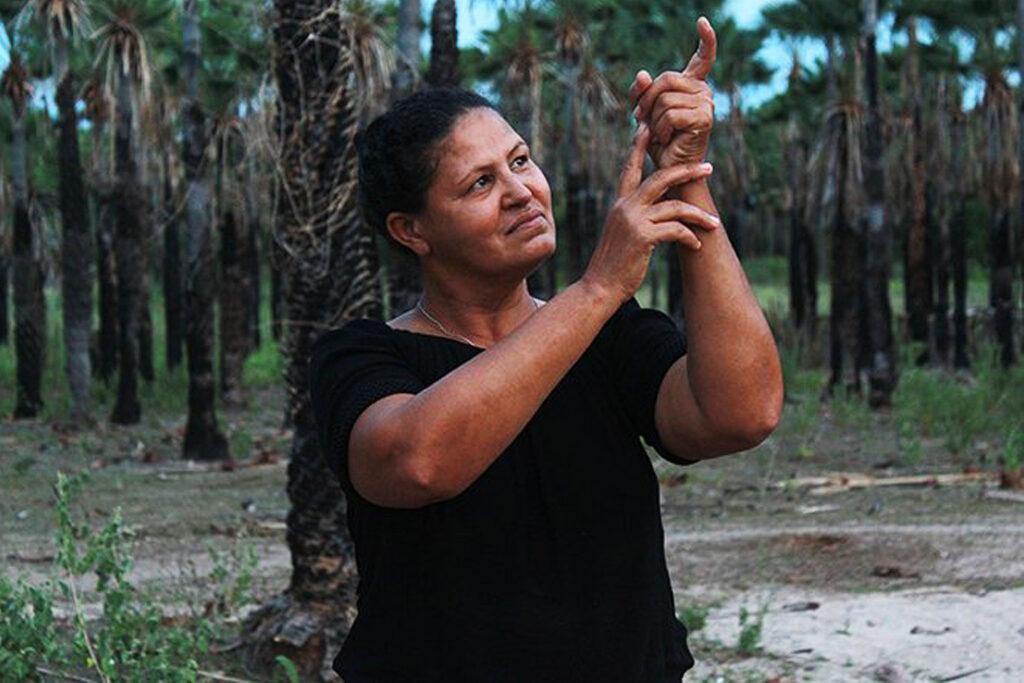
Congratulations to Diane Stoianov who has won the UCL Cross-Disciplinary ‘Research Images as Art / Art Images as Research’ Competition 2020-21 with images made in the production of her PhD work. Full details are available here.
Konrad Siekierski is awarded the ‘2021-22 Dissertation Completion Fellowship’ by the Orthodox Christian Studies Center
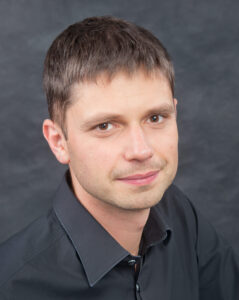
Konrad Siekierski has been awarded the 2021-2022 Dissertation Completion Fellowship by the Orthodox Christian Studies Center at the Fordham University in New York. Konrad is the final-year doctoral student in the Department of Theology and Religious Studies at King’s College London and the LAHP fellow from the 2017-2018 cohort. As a fellow of the Center, Konrad will work on completing his thesis on pilgrimage in modern Armenian culture. In the meantime, Konrad’s article ‘Scripts, Saints and Scientists: The Social Life of Gospel Books in an Armenian Museum’ will be published in the next issue of the Center’s Journal for Orthodox Christian Studies.
The information about the Center and its fellowship programmes can be found at: https://www.fordham.edu/info/23001/orthodox_christian_studies_center
How to recruit interviewees for your research project?
Our LAHP student, Nina Vindum Rasmussen (KCL, Culture, Media and Creative Industries, Yr 3), gives some excellent advice in this amusing youtube video. This is the first release of a series of videos funded through the LAHP Impact, Engagement and Entrepreneurship Fund, in which she will cover topics related to research methodologies such as online interviewing, analysing data in NVivo and more.
STUDENT AMBASSADORS’ EVENT
Overcoming challenges in academia: a forum on disability, race and class for prospective PhD students
17.00 – 18.00 Wednesday 28 April 2021
Join us for some short presentations, Q&A, and an open discussion organised by our LAHP Student Ambassadors about some of the challenges we face as ‘non-traditional’ and ‘under-represented’ people in academic spaces. This forum is primarily aimed at those considering doing a LAHP/ AHRC/ UKRI funded PhD from BAME, non-traditional and under-represented backgrounds, but all are welcome.
The forum will be chaired by Vicky Rasbridge, with presentations from Harsha Balasubramanian on disability, Saffron East on racism, Aleida Mendes Borges on being a ‘first in family’ scholar, and Yakim Milev on the transition from post-92 study and professional practice to doctoral research at an elitist university.
Book your place here.
Clara de Massol: Winner of the MSA Excellent Paper Award
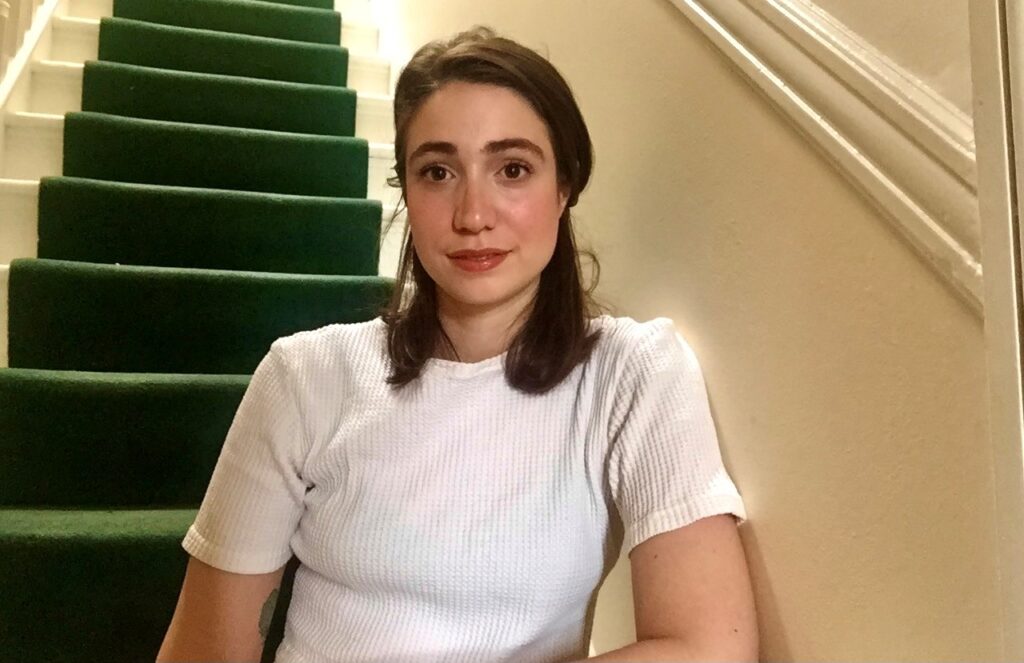
Last year’s winner of the Memory Study Association Excellent Paper Award is Clara de Massol de Rebetz, for her article ‘Remembrance Day for Lost Species. Remembering and Mourning Extinction in the Anthropocene’. Clara is a LAHP PhD candidate at King’s College London in the CMCI department, supervised by Dr Jessica Rapson. Her article was published last September 2020 in the latest issue of Memory Studies Journal, which you can read here.
Congratulations to Agata Zielinska who has recently completed her LAHP-funded PhD at UCL

‘In October 2020, I completed and handed in my doctoral thesis, titled ‘Territorialization, the Papacy, and the Institutions of the Polish Church, 1198-1357.’ In December, I passed my viva voce examination. The experience of finishing my PhD during the pandemic was certainly not what I expected back in 2016, when it all started!
My thesis looks at how territorial thinking and behaviours influenced how institutions – mostly ecclesiastical, but also lay – developed. While the bulk of my research took place at the British Library, my PhD journey was certainly much more than that. Thanks to the support of LAHP, I was able to attend and speak at the International Medieval Congress in Leeds in 2017, 2018, and 2019. This is the largest international conference dedicated to all things medieval in Europe, and an invaluable opportunity to meet with fellow graduates and ‘the giants’ alike, in a diverse and democratic setting. Working on medieval Poland in the UK, this was particularly important for me as it offered the space to meet Polish medievalists.
One of the highlights of my PhD was a 3-month stay in Paris, at the École nationale des chartes, which is one of the most prestigious places anyone, but perhaps medievalists in particular, can go to study paleography, diplomatic, and codicology. This was enabled by LAHP’s Research Support Fund and the French language classes I was able to take through the Research Training Programme. I think it is important to stress that it was not just the classes I was able to audit in Paris that were beneficial – it was also the opportunity to experience attending a new institution and living in a new city. Those aspects of academic life have a huge impact on how we do our research, and make it all the better’.
Congratulations to Cydonie Banting who has recently submitted her PhD thesis at King’s
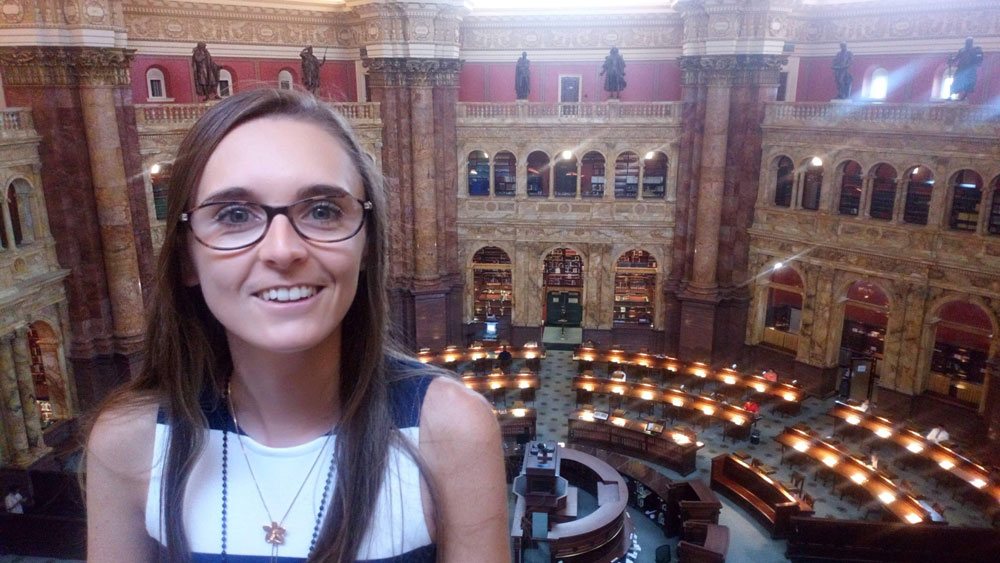
‘I have recently submitted my doctoral thesis entitled ‘Learning to Compose as a Tool of Ethnographic Research in a Rural Ugandan Village’. The project has involved numerous periods of fieldwork supported by LAHP, where I studied music-making in Kanjobe, a rural village located near Kabale in Uganda, close to the Rwandan border. The community rallies around the performance activities of their local choir, with whom I interacted in various creative exchanges. Indeed, participation in performance during fieldwork research has been predominant in ethnomusicology since the 1980s, meanwhile opportunities for equivalent kinds of practice-led approaches through the act of musical composition have been overlooked. I consequently advance in my thesis ‘learning to compose’ as a crucial mode of communication and methodological approach for global music studies.
The highlights during my LAHP studentship have included speaking at the Society for Ethnomusicology annual conference in Bloomington, Indiana, USA, and the Akin Euba Symposium at the University of Lagos, Nigeria. I was a Kluge Fellow at the Library of Congress, Washington DC, as part of the AHRC’s International Placement Scheme in 2019 and I undertook a month-long study visit at the University of North Carolina, Chapel Hill, in 2017. These formative experiences, in addition to other workshops, seminars and networking events facilitated by LAHP, have given me a flavour of entering academia as a professional and for living and studying abroad, so that I am now applying for postdoctoral placements at various American universities’.
Congratulations to Benjamin Dalton who has recently completed his LAHP-funded PhD
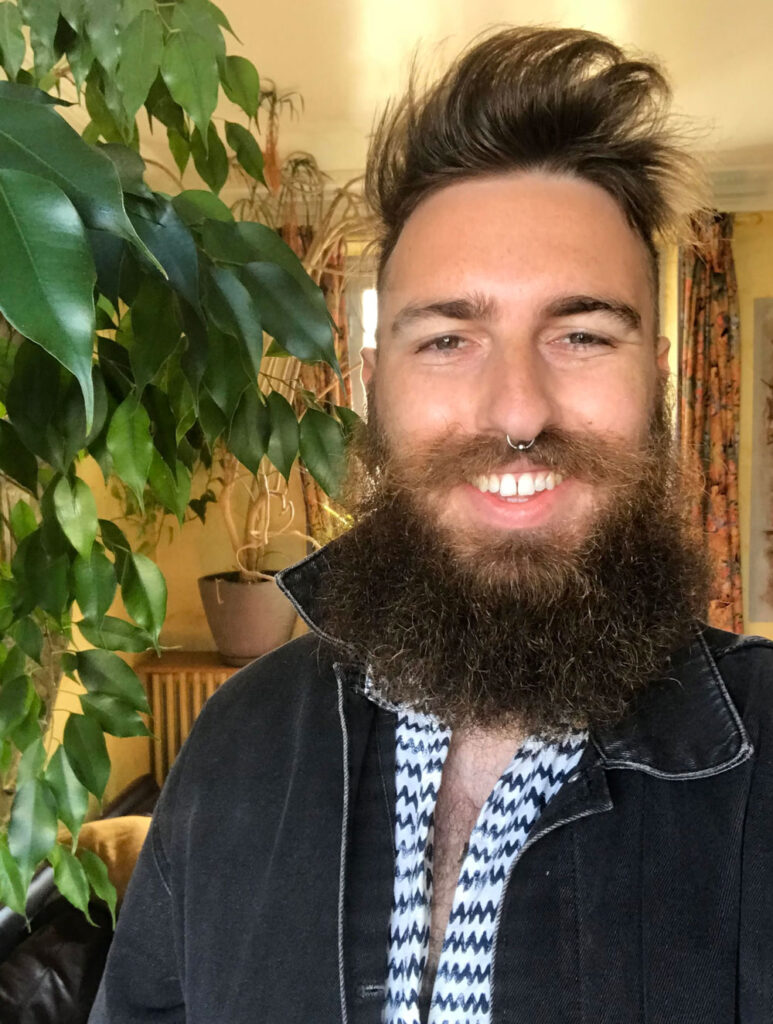
‘My LAHP studentship allowed me to complete my PhD thesis entitled ‘Plasticity in Contemporary French Thought, Literature and Film: Witnessing Transformations with Catherine Malabou’ in the department of French, King’s College London. My thesis explored the work of the contemporary French philosopher Catherine Malabou, whose interdisciplinary concept of plasticity traces the ways in which different structures and lifeforms are mutable or ‘plastic’ and capable of transformation. For example, Malabou turns to neuroscientific research into the (neuro)plasticity of the brain, which demonstrates that the brain undergoes constant change and transformation throughout a lifetime. I argued that contemporary literature and film are also able to shed light on diverse forms of plasticity—in the body, in the brain, and beyond—which resonate with and challenge Malabou’s concept. Bringing Malabou into dialogue with literature and film, I suggested, can extend our knowledge of plasticity and of how we transform; philosophy and cultural production are vital tools alongside the sciences in discovering what plasticity means for us!
I have published parts of my research across various different platforms. My recent publications include an article on plasticity in the writing of Marie Darrieussecq entitled ‘Forms of Freedoms: Marie Darrieussecq, Catherine Malabou, and the Plasticity of Science’ in Dalhousie French Studies (2020); a book chapter on queerness and plasticity entitled ‘Cruising the Queer Forest with Alain Guiraudie: Woods, Plastics, Plasticities’ (2019); and an interview with Catherine Malabou in Paragraph (2019). I have spoken about my research at both academic conferences and public-facing festivals, including a talk at HowTheLightGetsIn which you can watch here, which was accompanied by a blog for the Institute of Art and Ideas. I also wrote a blog post for LAHP’s online journal Still Point about representations of the brain in B-movies. I am currently working on the manuscript for a monograph building on my doctoral research.
LAHP were also extremely supportive of interdisciplinary and collaborative projects which I carried out alongside my research. For instance, LAHP’s ‘Research Extension and Placement Fund’ generously allowed 6 extra months of funding which recognized time that I had spent working on my KCL Collaborative Scheme for Early Career Researchers project ‘Narrating Plasticity: Stories of Transformation between the Plastic Arts and Neurosciences’ (2017-2018), funded by KCL’s Culture team, as well as time I spent at the University of Philadelphia, Pennsylvania. My time in the US allowed me to give various talks on my research at UPenn and elsewhere, including a guest talk at Smith College in Northampton, Massachusetts, generously invited by Carolyn Shread, translator of many of Malabou’s works. During this time, I also travelled to the University of Irvine, California, to conduct an interview with Malabou which is now published in Paragraph (2019). My time in the US was further supported by LAHP’s ‘Study Visit and Conference Fund’, without which it would not have been possible.
LAHP has also provided so much support on a personal level, offering a wonderful network of researchers and organising events to encourage collaboration and friendship. One particular evening I remember was the LAHP Christmas event, in which we all met at the Charles Dickens Museum and enjoyed a tour and mince pies! LAHP also organised regular writing workshops, permitting PhD researchers to work together in the same location, share ideas, and think differently about our writing and researching practices.
I currently teach English language and literature at Paris Nanterre University and the New Sorbonne University in Paris. Looking forward, I plan to continue my academic career and further develop my research in the areas of French studies and the medical humanities. I’m so grateful to the LAHP for all of the support they have provided, and for the rich and exciting research environment they have provided. This period of my life was an adventure I will never forget!’
‘That Black Theatre Podcast’ created by LAHP CDA student Nadine Deller
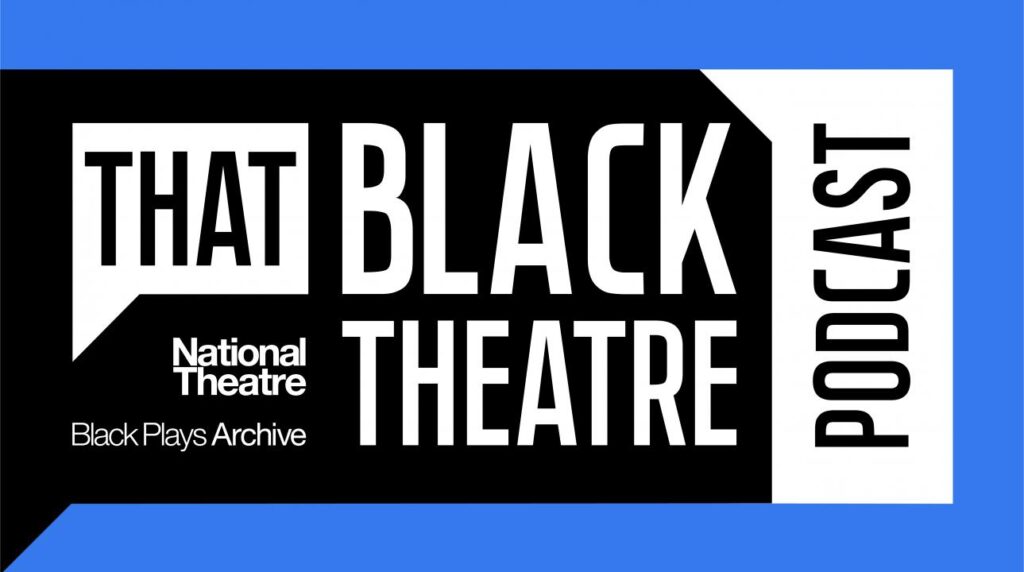
LAHP CDA student Nadine Deller has created ‘That Black Theatre Podcast’, a 12-week podcast series in collaboration with the National Theatre Black Plays Archive and Royal Central School of Speech and Drama discussing the leaders of Black British theatre and the political & social events of the 20th & 21st Century that influenced their work. Find out more and listen to the podcast here.
Queen Mary English Department Postgraduate Research Seminar – organised by LAHP PhD student Ruth Hobley
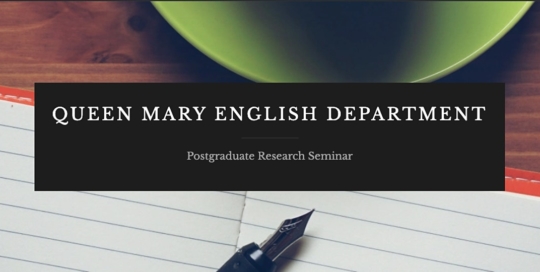
The Queen Mary English Department Postgraduate Research Seminar is a fortnightly research seminar that takes place every other Thursday during the first and second semesters of the academic year. Seminars are led by speakers from a number of academic institutions, who come to discuss their current research-in-progress with the staff and postgraduate students in the English Department. The papers are followed by a question and answer session (and refreshments when not hosted virtually!).
The next event is scheduled for Thursday 29th October at 5pm, when Dr Jason Allen-Paisant from the University of Leeds will be giving a paper entitled ‘Blackness and Landscape: A Long Historical View’. You can find details of our full programme and how to book on our website: queenmaryenglish.wordpress.com, and on Twitter @QMEnglishPGRS. This Autumn semester, all our seminars will be hosted on Zoom, usually at 5pm (GMT), though please check individual event pages for details. Seminars are free to attend, but booking is essential.
All are welcome. This is a seminar organised by current PhD students at Queen Mary, but it is open to anyone who is interested in English and literary studies. The organisers are particularly keen to reach out to Master’s students and to those from other universities and institutions.
For further details, please contact qmenglishpgrs@qmul.ac.uk
‘In Search of Zera Yacob’ Conference – May 2022 (date TBC) – organised by LAHP PhD student Jonathan Egid
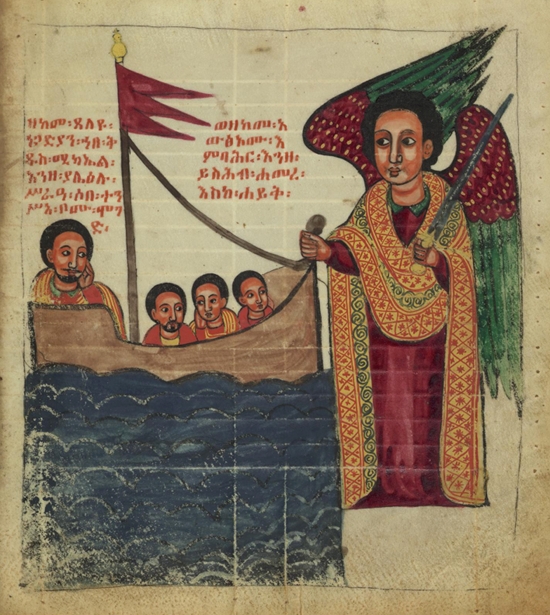
‘In Search of Zera Yacob’ will be the first international and interdisciplinary conference on a fascinating and hitherto neglected topic: two remarkable philosophical texts from Ethiopia and the ongoing debate over their authorship. These two texts, the Ḥatäta Zär’a Ya‛ǝqob and the Ḥatäta Walda Heywat have been objects of suspicion and admiration since their discovery (or perhaps their forgery) in 1852 by the Capuchin monk Giusto d’Urbino, both for their intrinsic philosophical interest and apparent historical singularity in the Ethiopian and African context.
The central question this conference hopes to explore is whether the texts have a genuine 17th century Ethiopian authorship, or whether the supposed ‘discoverer’ of the texts, the 19th century Capuchin monk Giusto d’Urbino, was in fact their secret author. The conference works on the assumption that the texts are interesting either way:
If the works are authentic, there is plenty to do, both in terms of studying the philosophy and literary qualities of the works, but also in understanding what they mean for the history of philosophy (that modern philosophy was born almost simultaneously in Ethiopia as in Europe; that they are the oldest texts in the context of sub-Saharan African philosophy; that they open up interesting questions of influence etc.), and in to thinking about why they were considered fakes for so long. If they ARE NOT authentic, how are we to best understand them? Are they still interesting as works of philosophy? If not, why not? And how do they fare as literary creations? If they are fakes, how do they relate to other historical texts from Ethiopia and from the philosophical canon?
The conference aims to bring together scholars from across philosophy, history and Ethiopian Semitic philology to discuss the question of the authorship of the texts, the possibilities for resolving the authorship debate, and the place of the texts in philosophical and literary history.
Currently we are postponing a decision on precise dates in light of the pandemic, but hope to announce a definitive date soon.
See the conference website for the call for papers, speaker list and details of the forthcoming proceedings of the conference, to be published in 2023 by de Gruyter.

